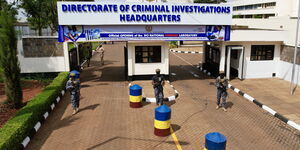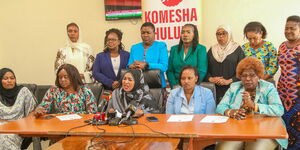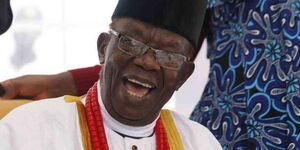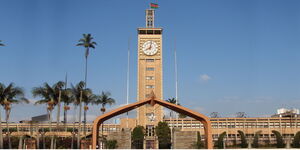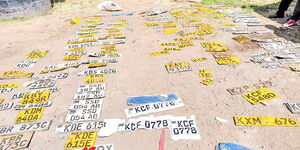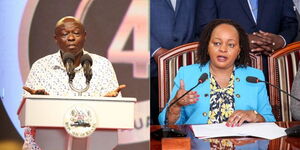The Independent Electoral and Boundaries Commission (IEBC) has revealed that the voter registration schedule for the 2027 General Election will be issued in August this year.
While speaking to members of the press on Saturday, July 19, IEBC Chairperson Erastu Ethekon disclosed that the Commission would gazette the schedule detailing when the nationwide voter registration would take place.
In an attempt to quell one of the pressing concerns raised by Kenyans ahead of the much-anticipated polls, Ethekon noted that the IEBC had already begun groundwork and urged Kenyans to turn up and register as voters.
“The IEBC is currently finalising internal processes, and in August, which is next month, will announce via gazette notice the timelines for resumption of continuous voter registration to allow eligible citizens of Kenya to register as voters,” Ethekon stated.
“The Commission, therefore, encourages continued civic engagement, and we pledge to keep all stakeholders informed as these developments unfold,” he added.
According to IEBC records, the total number of registered voters in Kenya as of the 2022 General Election stands at 22,120,458.
On February 25 this year, while appearing before a National Assembly Committee, IEBC Deputy Chief Executive Officer (CEO) Obadiah Keitany disclosed that the Commission would register an additional 5.7 million Kenyans as voters, bringing the total number to over 28 million.
In his address, Ethekon revealed that the delay in the critical exercise had been caused by the failure to reconstitute the Commission after the expiry of the previous Commission’s term.
Even so, he maintained that IEBC would act with purpose to ensure that voter registration would be conducted despite the tight timelines.
Voter Registration Process
To register as a voter, an individual must be a Kenyan citizen, at least 18 years old, and possess an original National ID card or a valid Kenyan passport. They must present themselves in person at a designated registration centre, which could be an IEBC county or constituency office, a temporary centre during mass drives, a Huduma Centre, or even selected Kenyan missions abroad for diaspora voters.
At the registration point, their details are captured electronically using a Biometric Voter Registration (BVR) kit. This includes their name, ID/passport number, and demographic information, alongside their fingerprints and a digital photograph. After verification of the captured details, an acknowledgement slip is issued as proof of registration and confirmation of their polling station.
The IEBC then compiles a provisional voter register, which is opened for public inspection and verification. During this period, citizens can confirm their details via SMS, online portals, or physical checks at gazetted centres. Any errors can be corrected, and objections to other entries can be raised. This critical phase ensures the accuracy and integrity of the register before the final, certified voter roll is published for use in elections.
The recently sworn-in chair also addressed the critical issue of boundary delimitation, disclosing that the Commission was still awaiting guidance from the Supreme Court. This was because the timeline for conducting the boundary review had already elapsed, and the IEBC needed legal direction to determine its next steps.

